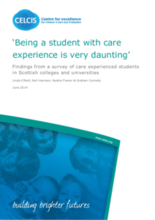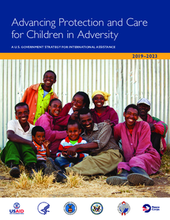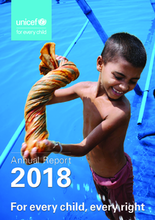Displaying 91 - 100 of 349
The goals of the present study were (a) to explore relationships amongst various child‐level correlates of school engagement and problem behaviors—namely, self‐esteem and social skills—and (b) to respectively investigate the protective potential of self‐esteem and social skills in the association between school engagement and behavior problems that threaten educational trajectories.
This paper explores how the principle of linked lives can illuminate our understanding of how relationships positively influence the educational journeys of adults with care experience over time.
The research presented in this report aimed to broaden and deepen understanding of the barriers and enablers that care experienced students encounter in going to, being at and staying at college and university in Scotland.
In this paper, the authors present the results of the Studiare Migrando project (www.studiaremigrando.it), in which an online learning platform to improve the language skills of young migrants and accessible via mobile devices has been implemented.
The goal of the Strategy is to ensure the U.S. Government’s investments for the most-vulnerable children and families around the world are comprehensive, coordinated, and effective in helping place partner countries on a Journey to Self-Reliance by which they can sustainably finance, manage, and deliver services that lead to stable, resilient, and prosperous families and communities.
Guided by the life course principle of expected ‘diversity in life course trajectories’ this paper identifies the pathways taken through education among 18 care-experienced adults (aged 24–36) in Ireland and some of the experiences and events that influenced these pathways.
In this video, One Sky Foundation share some of their work in Thailand supporting children from disadvantaged families to stay in education.
In words, images, facts and figures, this report details the results that UNICEF achieved in 2018, together with its generous partners and supporters, a dedicated global workforce and children and young people themselves.
This study analyzed how the implementation of the strategy of extending learning time in a group of adolescents living in residential care contributed to promoting their scientific vocations and increasing their academic expectations and their knowledge of these disciplines.
This mixed method study explores the postsecondary experiences of foster alumni in a large southwest urban area of the US.



